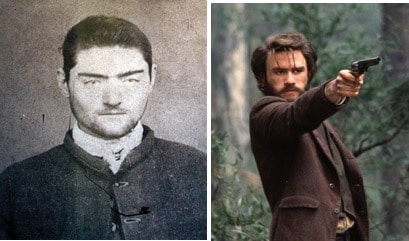From the Head of History, Barry Smith
As the students commence their HSC examinations it is pertinent to showcase the academic and intellectual endeavours of those students who undertook the difficult and rigorous History Extension course during 2017.
Each student selected, researched and wrote a 2,500 word narrative on a topic of their choosing. Apart from an area of personal interest, this was also underpinned by application, understanding and astute selection of historiographical issues and philosophical paradigmatic positions in line with the aim and intentions of their investigation.
At the recent farewell assembly, Stephen Croft was awarded Dux of the College, 1st in Ancient History and 1st in History Extension, amongst other academic prizes. Ryan Crawshaw was awarded 1st in Modern History and ran a close second to Stephen in History Extension.
Below is Ryan Crawshaw’s synopses for his major research project. I commend him on his dedication, thoughtfulness and approach to historical investigation, literacy and narrative
Synopsis by Ryan Cranshaw – Manifestations of Ned Kelly

A general interest in crime and Australian history introduced the potential idea to combine the two and focus on Ned Kelly. Instead of constructing an historical investigation on his crimes, I turned to how his actions have been represented, and whether or not there has been a synonymous link between all forms of representations.
I discovered that there has been a constant rendition of Kelly’s actions not only being justified, but also shaping him as a folk hero in line with societal values. Hence, the final question I developed was how Ned Kelly’s manifestations support the notion of him being a folk hero, and acting as an icon against injustices.
I have conducted this investigation under the lens of relative truth. The notion of relativity is initially quintessential to refute the absolute truth that Kelly murdered unjustly, and therefore must be considered evil. Secondly, the notion of relative truth inherently underpins all manifestations of Kelly, as all of his depictions are relative in reflecting the creator and their culture.
Whilst one could satisfy this question purely through film, I specifically employed a qualitative agenda to provide a more holistic and substantiated overview. Through doing this, I have shown that Kelly, throughout various manifestations, has consistently reflected what Australian society views as characteristics of a folk hero.
The purpose thus focuses on the influence such representations have had over time. These include how Kelly’s actions compare to mitigating beliefs, such as Ward’s (1958) “The Australian legend”; the construction of larrikinism and its attendant stereotype; and the concept of “social banditry”. In accordance with Kelly’s contextual manifestations, these are embedded in archival and research delving into news reports, film versions and music. The overall hypothesis is to determine whether or not Ned Kelly has transcended Australian values from the colonial to the contemporary.
Consequently, as outlined in the following narrative, it is evident that Kelly’s representations have always, intentionally or unintentionally, mythicised him in accordance with what society believes to be the ‘perfect’ folk hero. Overall, I aim to prove this belief through making a constant link between his portrayals and manifestations in theories, and subsequently making a link between the effect it has had on Australia today.



